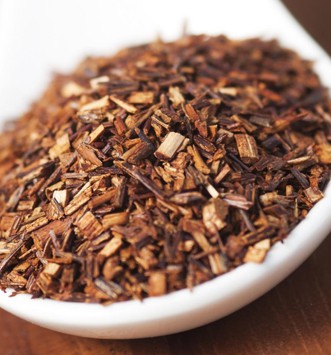
The red infusion from Africa is trendy. With its sweet taste, the herbal tea favorably substitutes for tea and coffee. Free from theine and caffeine, the Cape beverage is nevertheless rich in antioxidants. The benefits of red rooibos on health are therefore numerous. Skin problems, cardiovascular health, allergies, cancer, or colic, nothing seems to resist South African red tea. Let's explore.
Decode the origin of African red tea benefits
The medicinal properties of rooibos mainly come from the polyphenols present in their leaves. These molecules belong to the antioxidant family. They therefore protect the body's cells from external aggression. Many benefits are attributed to them.
To understand the benefits of rooibos, one must understand the properties of antioxidants. This family of molecules, which includes polyphenols, acts against free radicals. These radicals are responsible for cellular damage such as skin aging and cancer development. In this sense, rooibos could have health benefits.
However, be careful, like milk, rooibos disrupts iron absorption. People with anemia (iron deficiency) should therefore limit their consumption.
Discover the benefits of the Cederberg beverage
Among the commonly cited medicinal qualities of rooibos, we find:
- digestive benefits;
- sedative properties;
- anti-allergic properties;
- anti-aging properties;
- anti-cancer properties.
The red rooibos is a plant studied for its health effects. Most of these claims about the product come from its traditional uses. As with Chinese pharmacopoeia, scientists are now trying to prove all these claims.
Rooibos and digestion
No scientific study can confirm the benefits of rooibos consumption for digestion. However, widespread traditional use in Africa demonstrates the product's interest in gastrointestinal disorders, including colic.
Rooibos and sleep disorders
Sleep disorders are often worsened by coffee and black tea due to their caffeine and theine content. Rooibos tea doesn't have this effect.
On the contrary, ancestral recipes seem to demonstrate a calming effect conducive to falling asleep. In this case, spices such as vanilla are added to red rooibos tea. Other plants like verbena, linden, or chamomile can also be mixed with red tea infusions.
Rooibos and allergies
Rooibos infusion relieves atopic eczema, often a sign of allergy. According to scientific studies, it's the antioxidants that reduce the skin's reaction to allergenic substances.
Rooibos and aging
Consuming red African infusion is also beneficial for the skin. According to scientific trials, antioxidants limit cellular degradation. They therefore slow down the appearance of signs of skin and tissue deterioration.
Recent studies have shown that the tissue-protective qualities of the plant could prevent strokes. According to observations, these teas can also limit their impact on neuronal destruction.
Rooibos and cancer
At this stage of medical knowledge, rooibos has not yet proven notable effects on cancer. However, significant in vitro research demonstrates this type of activity on human skin cells. The beverage therefore seems promising in this direction.
Enjoy the benefits of organic red rooibos
It's in the heart of nature that the rooibos shrub draws all its strength. This organic and wild plant, which only grows in arid mountains, produces a flavorful beverage. Its leaves are fermented in open air to develop an intense red color. There is also a green version, with unfermented leaves.
To prepare the infusion, simply pour hot water over the plant leaves. In a few minutes, the herbal tea is ready to enjoy.
Traditionally, rooibos infusions are drunk with milk. In the West, the natural version is most popular. With just water, rooibos teas have a slightly sweet taste, like a slightly caramelized hazelnut.
To take care of their health, some Westerners add spices to the drink. Black pepper and vanilla seem to be the most popular. There are hundreds of varied recipes for consuming rooibos. Each infusion takes on an exotic, spicy, or sweet flavor.
According to scientists, rooibos appears to possess interesting benefits for the human body. All studies conducted so far point in this direction. For food lovers, the choice is clear. Rooibos advantageously replaces other hot beverages. It's primarily a moment of pleasure. The drink therefore combines all the advantages to become an essential part of your gourmet and wellness breaks.